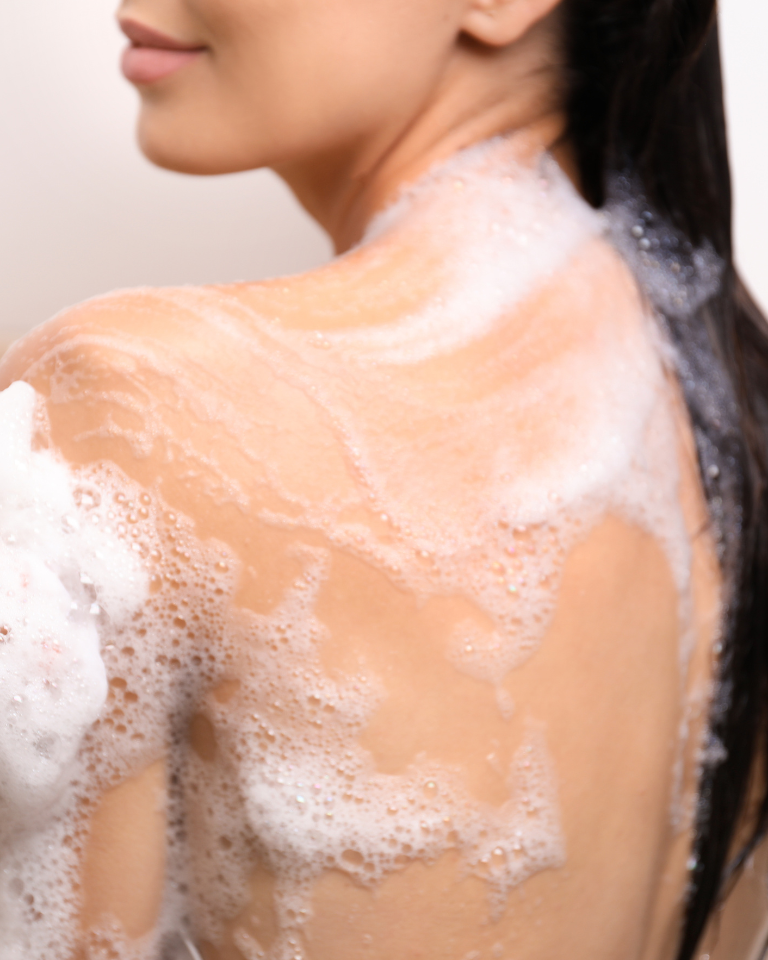 No matter your skin type—dry, oily or sensitive—a daily skin care routine can help you maintain overall skin health and improve specific concerns like scarring, acne, and dark spots.
No matter your skin type—dry, oily or sensitive—a daily skin care routine can help you maintain overall skin health and improve specific concerns like scarring, acne, and dark spots.
A typical skin care routine includes cleansing, using serum, moisturizing, and applying a sunscreen.
While a skin care routine can produce a clear and healthy skin, it can also result in an overload of ingredients. Unfortunately, when there is excess application of ingredients, your skin’s protective barrier can break down and you may experience extreme inflammation, redness, rashes, sensitivities, and breakouts.
What is a skin care diet?
A skin diet is a tailored application of skin care products to rebuild and regenerate the skin. A carefully customized skin diet recreates stratum corneum layer of your skin, minimizes irritation and inflammation, and produces a clearer, healthier, glowing skin.
You may not need a skin diet if your skin is already clear and healthy. But when you’re experiencing problems or are not responding to various products you’re using, then you need to consider a skin care diet.
A skin diet is made of four basic products—a cleanser, serum, moisturizer, and sunscreen. However, as with choosing the ingredients for any menu, you’ll need to be careful and deliberate as you pick all the products to include in your skin diet. For instance, you’ll need to avoid harsh actives, fillers, synthetics, and artificial fragrances.
1. Cleanser
A good cleanser is the cornerstone of a great skin diet. Ideally, you should go for a gentle cleanser that is known to work well for all skin types. Avoid cleansers with free alpha or beta-hydroxy acids and other exfoliating agents. Also, avoid a cleanser that will leave your skin tight after washing.
2. Serum
A serum with vitamin C or growth factors or peptides is great in the morning, under sunscreen. Then at night, retinol or prescription retinoids tend to work best.
3. Moisturizer
A moisturizer pairs well with a cleanser to ensure your skin has enough moisture to perform cellular functions. In fact, even an oily skin needs a moisturizer, though you’ll need one that is lightweight, gel-based, and non-comedogenic (doesn’t block your pores).
Additionally, an ideal moisturizer is one that contains hyaluronic acid and vitamin E, but you should avoid a super-thick cream. A dry skin may benefit a lot from a cream-based moisturizer—most brands label their products as gel or cream on their packaging.
4. Sunscreen
You need to apply sunscreen on a daily basis to protect your skin from the sun. Most preferably, you should go for a mineral-based sunscreen with at least 30 SPF 15 minutes before you head outdoors—sunscreen takes time to activate.
Even with a darker skin, you still need sunscreen. That’s because hyper-pigmentation is harder to correct. Try a broad-spectrum UVA/UVB product, making sure to avoid anything that may irritate sensitive, acne-prone skin.
Why should you go on a skin care diet
1. A skin care diet goes back to the basics, enabling you to use only products that are beneficial to your skin. A tailored diet rebuilds the protective skin barrier and boosts skin balance and pH levels, preventing redness, rashes, blemishes, and sensitivities.
2. A skin diet gets rid of the many unnecessary ingredients that when used for too long can cause skin sensitivity and damage the skin. In a carefully planned and tested skin diet, the regimen includes a few effective products.
3. A skin diet enables you to eliminate harsh products from your skin care routine. Remember, harsh products can remove natural oils from your skin, damage the skin barrier, and make your skin more susceptible to harmful aggressors, pollutants, and premature aging.
4. A skin diet prevents adverse product interactions by allowing you to gradually and carefully combine various products and achieve synergy—enabling you to get better results from less.
5. A skin diet prevents aggressive skin exfoliation that may cause red, irritated skin and increase the risk of wrinkles and fine lines. While physical and chemical exfoliation is excellent in removing dead skin cells and promoting cell turnover, over-exfoliation can trigger cosmetic problems.
How does skin care diet work?
Basically, you opt for a skin diet when you have a skin-related problem. But the dieting process depends on the principle that it takes time to identify products that are best for the skin.
To start off, you give your skin a break from all the products you have been using to allow the skin to rebuild and revitalize. So you stop using everything, including cleansers, moisturizers, serum, sunscreen, acids, sulfates, fragrances, and exfoliating agents.
Next, you note down everything you’ve been using. A list of what you’ve eliminated will help you identify the ingredient that is behind your skin problem.
You’ll also need to clean your makeup brushes and consider every possible cause of skin irritation. Remember, a skin problem may be due to diet, age, genetics, or even menopause.
At the core of the skin diet is the minimalist approach. You begin with a basic and simple routine—cleanser, moisturizer, serum, and sunscreen—then observe how your skin reacts. Once you’re comfortable, you can add extra products, such as masks, exfoliating agents, and spot treatments to enhance your skin’s health.
Every time you add a new product, make sure to conduct a patch test, particularly if you suspect that you have sensitive skin. Patch testing will also help you identify potential allergic reactions.
To patch test a new product:
1. Apply a small amount of the product on your skin in a discreet area, such as on your inner arm or inside your wrist.
2. Allow 48 hours to see if your skin reacts to it.
3. Check the area at 96 hours of the application to see if you have a delayed reaction.
An allergic reaction may include itchiness, small bumps, irritation, or redness. If you notice any of these reactions, wash the area with water and a gentle cleanser. Then, you can return to the product and try another that better suits your skin type.
How do you care for your skin with a skin diet?
1. Choose products—cleanser, moisturizer, sunscreen, and serum—that fit your skin type and sensitivity. Make sure to read the product labels. Some products, such as retinol or prescription retinoids, should only be applied at night.
2. Get your skin prepared through healthy dietary changes and increased water intake. Staying hydrated will help your skin absorb and use the ingredients you’re applying.
3. Use a cleanser, serum and moisturizer. Also, wear sunscreen every day and apply 15 minutes before going out. Of course, the products you use should have easy-to-pronounce ingredients and with no harsh actives, fillers, synthetics, or artificial fragrances.
4. Use a particular product for at least 2 weeks before you add something new. As you use a product, observe how your skin responds to it. If you notice irritation, eliminate the product from your skin diet.
5. It will take 4-8 weeks to achieve desired results. So be patient and stick to the minimalist, one-product-at-a-time approach.
Honest, trustworthy plastic surgeon
Are you struggling with a skin-related cosmetic issue? Or are you considering a plastic surgery procedure and would like to get sound advice before you take the step?
At Politis Plastic Surgery, we offer a wide-range of natural, medical, and surgical solutions to aesthetic problems. Our open, compassionate approach ensures that we listen to you, appreciate your goals and expectations, guide you through all the options, and help you make an informed choice.
You can rely on us to turnaround your appearance and help you gain and regain your self-esteem and confidence.
For more information on facial treatments, light-based therapies, and plastic surgery procedures, contact us today!





